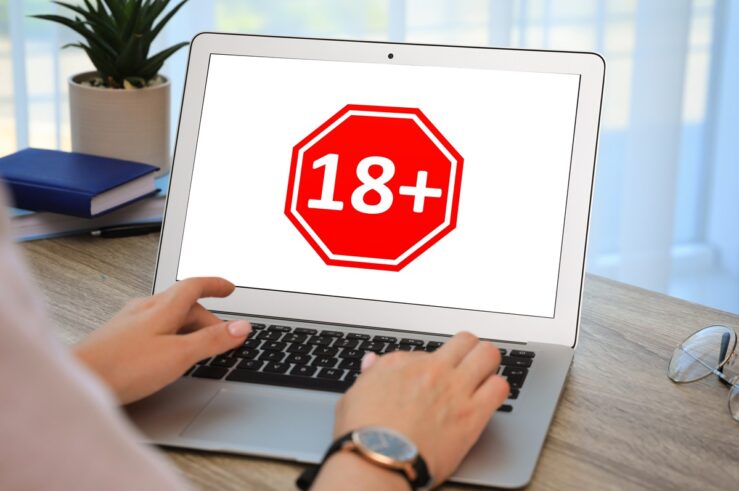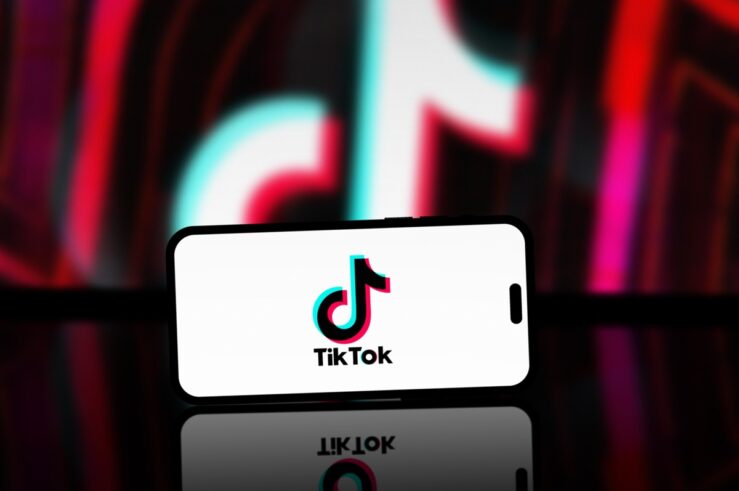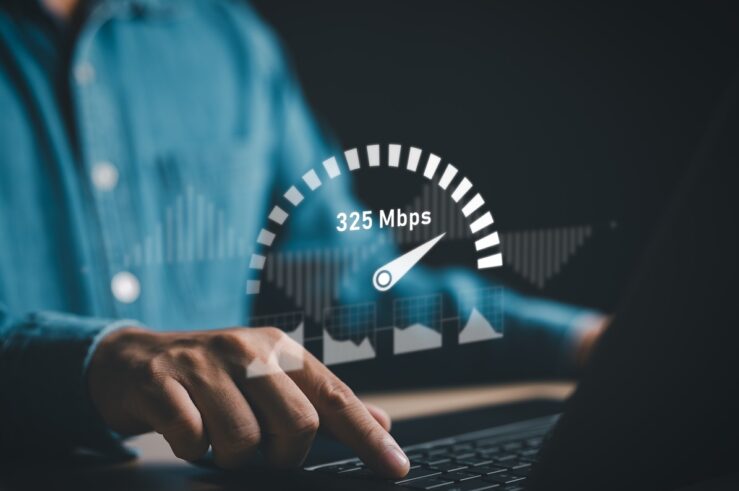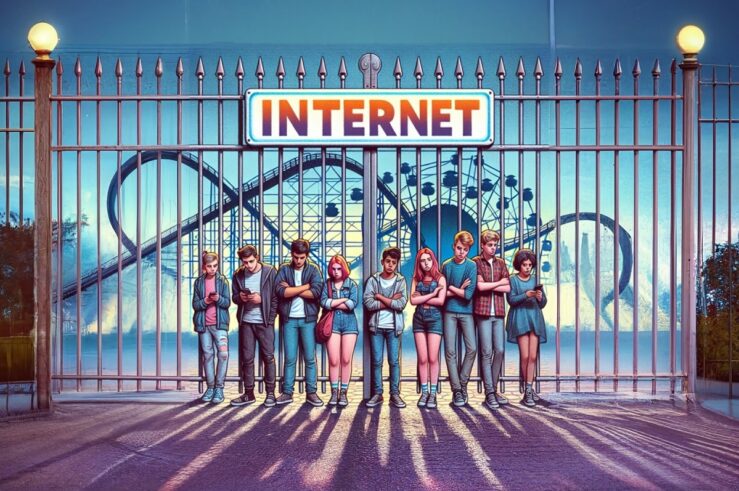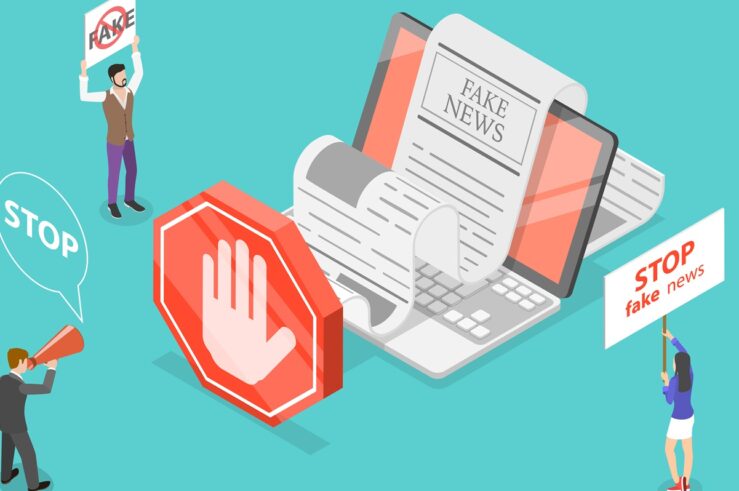Kids and Online Safety: An International End-of-Year Review
As the year comes to a close, it is worth reviewing how governments around the world—including at both the state and federal level in the United States—have approached online regulation to protect minors. I will review several of the major legislative and regulatory initiatives, with brief commentary on the tradeoffs involved in each approach. Age ... Kids and Online Safety: An International End-of-Year Review
The Law & Economics of the First Amendment: Curation, Targeted Advertising, and Access to Online Speech
We at the International Center for Law & Economics (ICLE) filed an amicus brief earlier this month to the U.S. District Court for the Northern District of California in the NetChoice v. Bonta case. It was an updated version of the brief we filed earlier this year before the 9th U.S. Circuit Court of Appeals. ... The Law & Economics of the First Amendment: Curation, Targeted Advertising, and Access to Online Speech
The Law & Economics of Online Age Verification and Parental Consent: App Store Edition
Roughly this time last year, I was writing an International Center for Law & Economics (ICLE) issue brief that considered online age-verification and parental-consent laws from a law & economics perspective. The resulting paper, “A Coasean Analysis of Online Age-Verification and Parental-Consent Regimes,” found that the major U.S. Supreme Court cases on age verification and ... The Law & Economics of Online Age Verification and Parental Consent: App Store Edition
Between a TikTok and a Hard Place: Products Liability, Section 230, and the First Amendment
With the 3rd U.S. Circuit Court of Appeals’ recent decision in Anderson v. TikTok, it’s time to revisit the interplay between the First Amendment’s right to editorial discretion, Section 230 immunity, and children’s online safety in the context of algorithms. As has been noted many times, the use of algorithmic recommendations is ubiquitous online. And ... Between a TikTok and a Hard Place: Products Liability, Section 230, and the First Amendment
Why Technological Neutrality Is Key to BEAD’s Success
Congress intended the Infrastructure Investment and Jobs Act’s (IIJA) ambitious $42.5 billion Broadband Equity, Access, and Deployment (BEAD) program to bridge America’s digital divide by subsidizing infrastructure buildout to areas that are either unserved or underserved by broadband internet. With projects administered by the 50 states, five insular territories, and the District of Columbia, the ... Why Technological Neutrality Is Key to BEAD’s Success
Does NetChoice v Bonta Mean Curtains for KOSA?
To butcher a Winston Churchill quote, it’s not yet clear if this is the beginning of the end, or just the end of the beginning, for children’s online-safety bills. Such legislation has been all the rage in recent years, earning bipartisan support at both the federal and state level. A version of the Kids Online ... Does NetChoice v Bonta Mean Curtains for KOSA?
ICLE and CEI Submit Amicus Brief Arguing the FCC’s Net Neutrality Order Is Unlawful
If you’ve been keeping up with the machinations of the Federal Communications Commission’s (FCC) latest attempt to regulate broadband under Title II of the Communications Act, you know that providers are challenging the rules in the 6th U.S. Circuit Court of Appeals. The court has put that case on the fast track. Earlier this week, ... ICLE and CEI Submit Amicus Brief Arguing the FCC’s Net Neutrality Order Is Unlawful
No Kids Allowed: KOSA/COPPA 2.0 Will Encourage the Exclusion of Minors Online
An important lesson of economics is that policies intended to help a targeted group of people often end up harming them in unintended ways. For instance, economists have long argued that policies like rent control and minimum-wage laws actually tend to lead to shortages in housing and jobs, respectively. Similarly, despite having the stated intention ... No Kids Allowed: KOSA/COPPA 2.0 Will Encourage the Exclusion of Minors Online
Will the Courts Allow the FCC to Execute One More Title II Flip Flop?
The U.S. Supreme Court’s recent decision in Loper Bright v. Raimondo may have added a new wrinkle to the decades-long fight over whether broadband internet-access services should be classified as “telecommunications services” under Title II of the Communications Act. The Federal Communications Commission (FCC) has flip-flopped multiple times over the years on this hotly debated ... Will the Courts Allow the FCC to Execute One More Title II Flip Flop?
How This Supreme Court Term Might Affect the FCC’s Digital-Discrimination Rule
The recently completed U.S. Supreme Court session appears to have upended the administrative state in some pretty fundamental ways. While Loper Bright’s overruling of Chevron attracted the most headlines and hand-wringing, Jarkesy will have far-reaching effects across both the executive and judicial branches. Even seemingly “small” matters such as Ohio v. EPA and Corner Post ... How This Supreme Court Term Might Affect the FCC’s Digital-Discrimination Rule
What Do the NetChoice Cases Mean for Online Speech?
With the release of the U.S. Supreme Court’s NetChoice opinion (along with some other boring case people seem to want to talk about), opinions for the October 2023 term appear to be complete. After discussing what Murthy v. Missouri means for online speech, it only feels right to discuss the other big social-media case of ... What Do the NetChoice Cases Mean for Online Speech?
What Does Murthy v Missouri Mean for Online Speech?
After a lot of anticipation from Supreme Court watchers, the Murthy v. Missouri opinion has finally been released. As the oral argument suggested, standing was the issue for the Court, who in a 6-3 decision written by Justice Amy Coney Barrett ruled that none of the plaintiffs had standing, due to a lack of traceability ... What Does Murthy v Missouri Mean for Online Speech?


